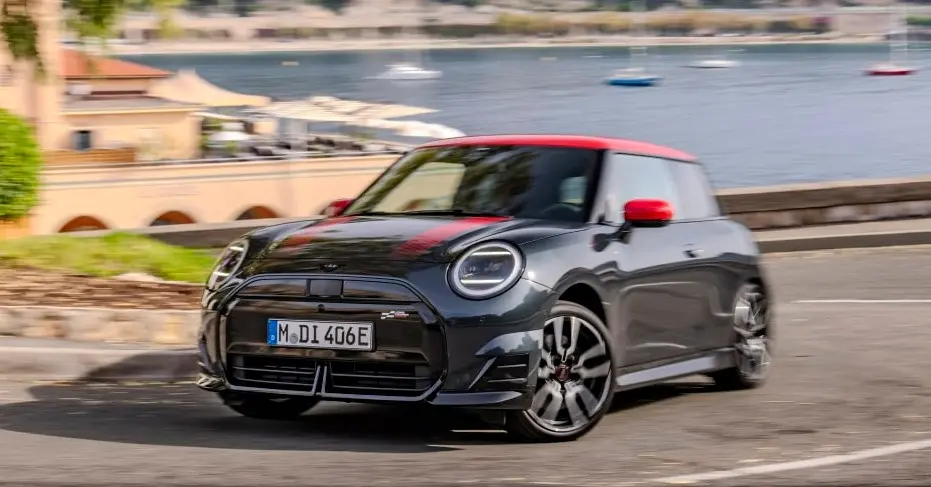Navigating The Chinese Market: The Struggles Of BMW, Porsche, And Other Automakers

Table of Contents
Intense Domestic Competition
The Chinese automotive industry has experienced explosive growth, fueled by technological innovation and government support. This has led to the emergence of powerful domestic brands that pose a serious threat to established international players like BMW and Porsche. This intense competition manifests in several key areas:
- Rising Domestic Giants: Companies like BYD, NIO, and Xpeng are rapidly gaining market share, leveraging cutting-edge technology and appealing designs to attract Chinese consumers. Their success significantly impacts the market share of traditional international brands.
- Aggressive Pricing Strategies: Chinese automakers often employ competitive pricing strategies, offering vehicles with comparable features at lower price points than their international counterparts. This price competitiveness puts pressure on established brands to adjust their pricing models.
- Improving Quality and Sophistication: The quality and technological sophistication of domestically produced vehicles have improved dramatically in recent years, eroding the perception of superiority long held by international brands. Chinese brands are now offering features and technologies on par with, or even exceeding, those of their foreign competitors.
Understanding Consumer Preferences in China
Successfully navigating the Chinese market requires a deep understanding of unique consumer preferences. These differ significantly from those in Western markets:
- Brand Image and Social Status: In China, the brand image and perceived social status associated with a vehicle are paramount factors influencing purchase decisions. Luxury brands like BMW and Porsche still hold prestige, but this must be constantly reinforced and adapted to evolving local trends.
- Electric Vehicle (EV) Dominance: The Chinese market demonstrates a strong preference for electric vehicles (EVs) and new energy vehicles (NEVs). This shift necessitates substantial investment in EV technology and infrastructure to remain competitive.
- Digital Influence and Social Media: Digital marketing and social media platforms play a crucial role in shaping consumer perceptions and driving purchasing decisions. Effective digital strategies are essential for reaching and engaging the Chinese consumer base.
The Importance of Localization
To succeed in China, international automakers must adapt to local tastes and preferences. This involves:
- Design and Feature Customization: Tailoring vehicle designs and features to cater to the specific aesthetic preferences and practical needs of Chinese consumers is crucial.
- Marketing and Communication Adaptation: Marketing and communication strategies must be adapted to resonate with the cultural nuances and communication styles prevalent in the Chinese market.
- Strategic Partnerships and Supply Chains: Establishing strong partnerships with local suppliers and distributors is vital for efficient operations and navigating the complexities of the Chinese market.
Navigating Regulatory and Legal Hurdles
The Chinese regulatory landscape presents significant challenges for international automakers:
- Import Tariffs and Local Content Requirements: High import tariffs and strict local content requirements increase the cost of importing vehicles and necessitate the establishment of local manufacturing facilities.
- Government Approvals and Regulations: Navigating the intricate process of obtaining necessary government approvals and adhering to evolving regulations demands significant expertise and resources.
- Environmental Regulations: Stringent environmental regulations, including emission standards, impact vehicle production, sales, and the need for investment in cleaner technologies.
Building Brand Trust and Reputation
Cultivating trust and a positive brand image is paramount for long-term success in the Chinese market:
- Public Relations and Crisis Management: Proactive public relations and effective crisis management are crucial for building and maintaining a strong reputation.
- Exceptional Customer Service: Providing high-quality customer service and after-sales support is essential for fostering customer loyalty and positive word-of-mouth referrals.
- Corporate Social Responsibility (CSR): Implementing strong Corporate Social Responsibility (CSR) initiatives demonstrates commitment to the local community and strengthens brand trust.
Conclusion
Successfully navigating the Chinese market presents significant challenges for international automakers, including intense domestic competition, evolving consumer preferences, complex regulations, and the crucial need for brand building. Overcoming these obstacles requires a long-term strategy that encompasses localization, technological innovation, and a deep understanding of the unique market dynamics. To successfully navigate the Chinese market and master the Chinese automotive landscape, thorough research and a comprehensive understanding of these factors are essential. Unlocking the potential of the Chinese market demands a committed and adaptable approach.

Featured Posts
-
 Trumps Transgender Military Ban Deciphering The Double Speak
May 10, 2025
Trumps Transgender Military Ban Deciphering The Double Speak
May 10, 2025 -
 Elizabeth Stewart X Lilysilk Spring 2024 Collaboration Unveiled
May 10, 2025
Elizabeth Stewart X Lilysilk Spring 2024 Collaboration Unveiled
May 10, 2025 -
 How Dangotes Refinery Could Reshape Nnpc Petrol Prices In Nigeria
May 10, 2025
How Dangotes Refinery Could Reshape Nnpc Petrol Prices In Nigeria
May 10, 2025 -
 Palisades Fires A List Of Celebrities Who Lost Their Homes
May 10, 2025
Palisades Fires A List Of Celebrities Who Lost Their Homes
May 10, 2025 -
 Soglashenie Frantsii I Polshi Ukreplenie Bezopasnosti V Evrope I Otvet Geopoliticheskim Vyzovam
May 10, 2025
Soglashenie Frantsii I Polshi Ukreplenie Bezopasnosti V Evrope I Otvet Geopoliticheskim Vyzovam
May 10, 2025
